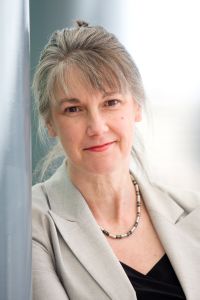|
|
|
|
|
|
|
News & Views item - December 2009 |
![]() Chief Scientist Gives Keynote Address on Climate Change to Australian Davos
Connection in Melbourne. (December 3, 2009)
Chief Scientist Gives Keynote Address on Climate Change to Australian Davos
Connection in Melbourne. (December 3, 2009)
 The
ADC (Australian Davos Connection Limited) describes itself as "a wholly
Australian, non-political, not-for-profit leadership organisation which brings
together leaders from business, government, the public sector, academia and the
broader community to improve their understanding of key issues affecting
Australia".
The
ADC (Australian Davos Connection Limited) describes itself as "a wholly
Australian, non-political, not-for-profit leadership organisation which brings
together leaders from business, government, the public sector, academia and the
broader community to improve their understanding of key issues affecting
Australia".
Australia's Chief Scientist, Professor Penny Sackett, today delivered the keynote address on climate change, Changing the World, at an event hosted by Australian Davos Connection in Melbourne.
The full address is available online at http://www.chiefscientist.gov.au/wp-content/uploads/Moving-the-World.pdf
Some excerpts:
__________________________________
I imagine that regardless of the outcome of the Copenhagen meetings, there
will be those who hail it as a success and those who describe it as a failure.
Either way, two things are certain.
First, the scientific truths that set us on this common journey are tolling more
loudly and more clearly than ever the need to take immediate action.
Second, an incredible amount of work will still remain to be done, most of it
outside the realm of politics. Of course having a supportive policy framework
would help, but forward-looking sectors cannot afford to wait for this to be in
place before they act.
Due to the quantity in which it is emitted by humans, its longevity in the
atmosphere, and its effectiveness in trapping heat, carbon dioxide, CO2,
is the most important of the greenhouse gases currently causing changes in the
Earth’s climate.
Oceans soak up 85% of the heat trapped by increased greenhouse gases. Their
average temperatures have been steadily rising since at least 1959.
Only a small fraction of the additional heat is taken up by the atmosphere. As a
consequence, air temperatures are quite susceptible to the state of the ocean
and land beneath them.
Sea level is rising, partly because warm water expands and partly because
glaciers and land ice are melting and calving off in large pieces into the sea.
At the moment, average sea level rise is about 3 mm per year, and projections
for the end of the century range from 75 to 190 cm (nearly 2 meters) depending
on the movement of the great ice sheets.
Even if everyone on the face of the Earth stops emitting greenhouse gases
tomorrow, we have already committed ourselves to a future in which the global
average temperature will be 1.3o higher than the periods in which
modern civilization has flourished. Given current emissions trajectories, it is
almost certain that we are locked into a climate that will be 2o
higher.
By acting now to ensure that annual global emissions peak by 2015 and then fall
steadily every year thereafter, we can transition into the new carbon economy in
a planned and measured way, and be rewarded by leading, rather than trailing the
pack.
We need to massively increase our investment in the research and innovation
required to continue the transition to a low-carbon environment, including
investing in smart, power grids suitable for the distribution of renewable as
well as other forms of energy.
Over the past thirty years, Denmark has gone from being fully dependent on
external energy to becoming a net energy exporter. Its GDP has grown by 70% over
this period with almost no increase in its total energy use.
The same time, its CO2 emissions have dropped by 18%.
What about costs? Studies presented by the Director of the Global Energy
Assessment indicate that the cost to maintain the global temperature rise to 2oC
is nearly the same as that to maintain the rise to 4oC. Why? Because
much of the reduction in greenhouse gases can be achieved through energy
efficiency, which saves energy and thus money.
Due to our large individual carbon footprints, some of the largest in the world,
we, as individual Australians, are probably more able on a person-to-person
basis to effect change than any other individuals in the world. Australians
matter and can make an enormous contribution. Why would we not rise to this
challenge and this opportunity to move the world with Australian science and
Australian individual and collective leadership?
_____________________________________________
Asked by the Herald Sun's Olga Galacho to explain data that showed the earth had been cooling in recent years, the trained astrophysicist acknowledged air temperatures had levelled during the La Nina weather pattern, now nearing an end.
"But next time someone talks about cooler weather, ask them if they are talking
about the temperature in the small amount of atmosphere above the surface of the
earth or the great mass of heat retained in the world's oceans," she said and
added. "When scientists talk about global warming, they are referring to the
temperature of the whole earth and most of the heat is stored in the oceans,
which have not cooled in 10 years."